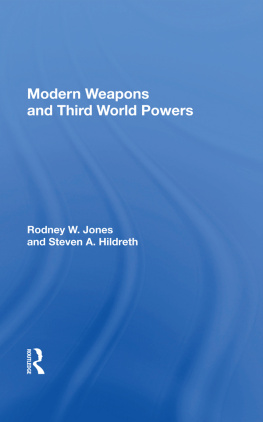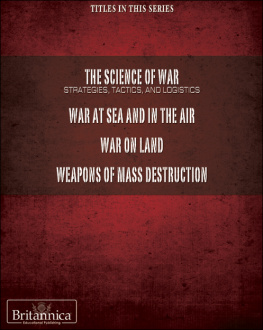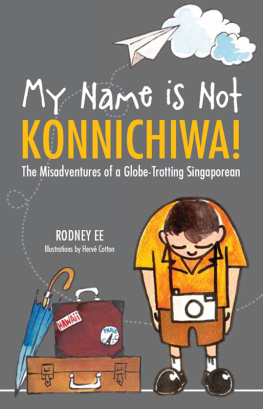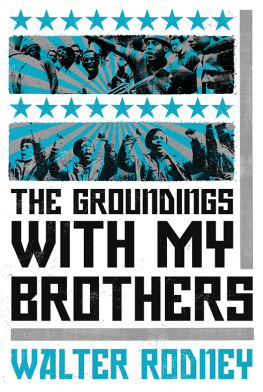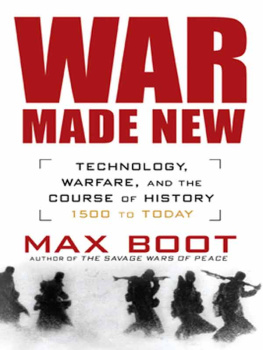Modern Weapons and Third World Powers
About the Book
The possession of high-technology weapons, some capable of mass destruction, is no longer the exclusive prerogative of superpowers. This volume explores the international and security issues raised by the acquisition of modern weapons among emerging Third World powers and its implications for U.S. policy. Based on the findings of a year-long research project that culminated in a major CSIS conference, Modern Weapons and Third World Powers assesses the findings of over 150 specialists on the regional goals, ambitions, security perceptions, and defense policies of countries in the Middle East, Asia, Africa, and Latin America.
The authors analyze the defense performance and international impact of these regional powers by examining their experience in obtaining, producing, and distributing modern weapons. They give particular attention to expert judgments of the factors determining Third World combat effectiveness and explore the impact of conventional and unconventional high-technology weaponry on regional patterns of conflict and conflict management as well as on international stability. They also discuss policy challenges that may emerge from Third World conflicts that affect U.S. foreign policy objectives and go on to recommend innovative approaches the U.S. could take to ensure regional and international stability.
About the Authors
Rodney W. Jones is a senior fellow at the Georgetown University Center for Strategic and International Studies (CSIS). Currently director of Nuclear Policy Studies at the Center and a member of the CSIS arms control working group, he has contributed to the Southwest Asian portions of the Future of Conflict and U.S. Army projects.
He was recently project director for Modern Weapons in the Third World, the basis for this volume. Currently, he is working on the military uses of space. Jones was formerly associate professor of political science and an associate of the Institute of War and Peace Studies at Columbia University. His government experience includes service in the Bureau of Political-Military Affairs at the Department of State. Dr. Jones has published Urban Politics in India (1974), Washington Paper #82, Nuclear Proliferation: Islam, the Bomb, and South Asia (1981), contributed to several books including The Future of Conflict in the 1980s (1982), and authored numerous scholarly articles. Recently, he published a book entitled Small Nuclear Forces and U.S. Security Policy ( 1984).
Steven A. Hildreth is a research associate, political-military studies, at Georgetown University CSIS. He has worked on nuclear nonproliferation, security assistance, and arms control, and recently with the State Departments Commission on Security and Economic Assistance.
He has published U.S. Security Assistance: The Political Process (coeditor and contributor), contributed to Strategic Requirements for the Army to the Year 2000 (1984), and authored in Journal of Church and State. In 1980 and 1981, he served as an executive officer in the International Studies Association, Washington, DC Region, and on the Advisory Council, 19821984.
PUBLISHED IN COOPERATION WITH THE CENTER FOR STRATEGIC AND INTERNATIONAL STUDIES GEORGETOWN UNIVERSITY
CSIS Significant Issues Series Volume VI, Number 4
Series Editors: Amos A. Jordan, William J. Taylor, Jr.
Editors: Jean C. Newsom, Nancy B. Eddy
First published 1984 by Westview Press
Published 2019 by Routledge
52 Vanderbilt Avenue, New York, NY 10017
2 Park Square, Milton Park, Abingdon, Oxon OX14 4RN
Routledge is an imprint of the Taylor & Francis Group, an informa business
Copyright 1984 by The Center for Strategic and International Studies
All rights reserved. No part of this book may be reprinted or reproduced or utilised in any form or by any electronic, mechanical, or other means, now known or hereafter invented, including photocopying and recording, or in any information storage or retrieval system, without permission in writing from the publishers.
Notice:
Product or corporate names may be trademarks or registered trademarks, and are used only for identification and explanation without intent to infringe.
Library of Congress Catalog Card Number: 84-50792
ISBN 13: 978-0-367-01728-6 (hbk)
Contents
, Hans Binnendijk
Robert W. Komer
On October 6 and 7, 1983, the Center for Strategic and International Studies of Georgetown University held a conference on Modern Weapons: Third World Motivations, Capabilities, and Performance, to focus on emerging regional powers and implications for U.S. policy. This conference concluded a year-long phase of research on Third World powers and completed a series of studies on the future of conflict, done in cooperation with Los Alamos National Laboratory. The conference brought together more than 150 specialists from government, academia, and industry.
Five panels dealt with various aspects of the defense capabilities and policies of key Third World countries and with the likely patterns of regional conflict and conflict management. Two keynote speakers also addressed these issues, one from a congressional and the other from an executive branch perspective. This volume is based on those proceedings.
The conference concluded a series of workshops on case studies of selected Third World regional powers organized by CSIS in 1983 and integrated these studies with related research on The Future of Conflict in the 1980s. The Los Alamos National Laboratory provided valuable support for the Future of Conflict Project, carried out in successive phases over three years.
In its first year, the project concluded that, although American economic and military power has declined, U.S. interests abroad have not. Competition for global resources among the superpowers and developing nations continues, and the likely structure of future conflict will not be global warfare, but low-intensity conflict, primarily in the Third World.
The second years work focused on strategic responses to conflict in the 1980s, concluding that strategic deterrence between East and West should remain credible through this decade and that the Soviets are unlikely to risk deliberate military confrontation with the West. Most conflicts will be of relative low-intensity and geographically distant from either superpower. Responding effectively to such conflicts will require a renewed consensus policy, a grand strategy to define requirements and set priorities, the development of flexible military and foreign policy organizations, and the technical capabilities to address a variety of low-intensity threats.
In its final year, the project focused on the defense capabilities and policies of emerging Third World powers through country case studies. The authors were as follows:
- William Perry, Brazil and Argentina
- Georges Fauriol, Mexico
- Pauline Baker, Nigeria
- Joseph Malone and John Shaw, Egypt
- Rodney W. Jones, India
- John Blodgett, Vietnam
- Donald E. Weatherbee, Indonesia
- Edward A. Olsen, Republic of Korea
- Gerrit W. Gong, Peoples Republic of China
These findings were to be compared with the broader regional generalizations developed over two previous years and used to assess U.S. security policy in the Third World regions. The conference agenda was arranged with these tasks in mind.

